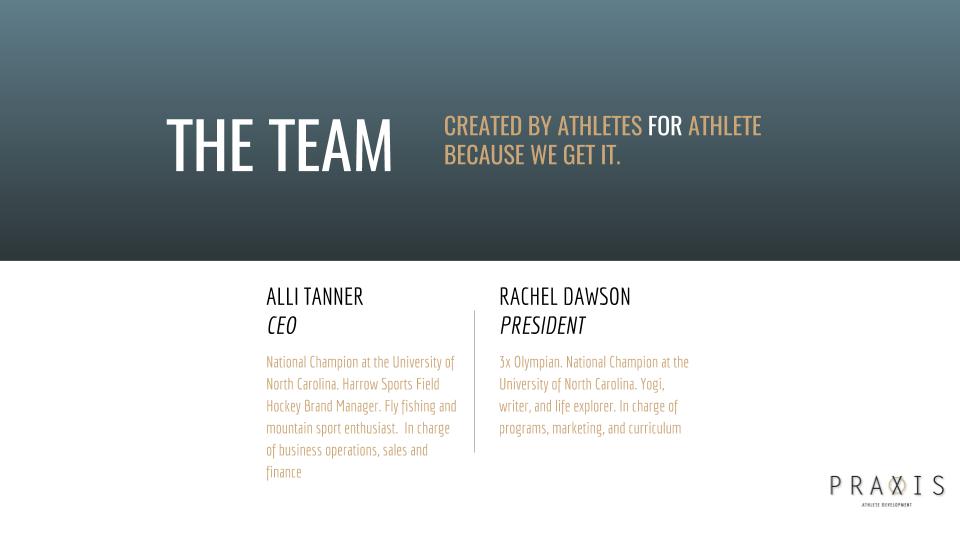This post is dedicated to Alli Tanner, Praxis CEO, my dear friend, and soon to be Mrs. Van Shaack. Thanks for always dreaming, exploring, and charging ahead, heart first. This is only the beginning.
“That’s Alli’s way, she is courageous. She loves adventure, she loves charging forward and having fun. She’s willing to chase a ball down that seems unreachable to everyone else. Without Alli’s commitment and courage to charge ahead, Praxis wouldn’t exist. ”
Before we dig into the next blog series on Personal Action Styles, and Leadership Languages, I wanted to take a second to rewind and refresh.
Let's go back to the summer of 2004 in Chapel Hill, North Carolina. It was hot outside. The sticky, muggy, can't escape the sun, end of summer, smells like dogwood trees, North Carolina hot. Alli Tanner was a freshman at UNC. I was a sophomore. It was the first day of preseason. Since school wasn't in session, and the dorms weren't open, Alli was crashing at my off-campus apartment.
The day started with the gauntlet. Alli came out guns blazing and ran a ridiculously fast gauntlet. Evening dawns, and we take the field for the annual opening day, intra-squad scrimmage. Alli, a forward, comes out again, guns blazing. She charges forward, heart first, head up, ready to pounce, chasing down a pass that seems unreachable. She closes in on the circle - she has a chance - the goal keeper rushes toward the ball, Alli doesn't stop, she keeps going, determined to win the contest. The goal keeper gets to the ball first, swings her leg back to clear it, makes contact, and bam, Alli takes the ball straight into the forehead from point blank distance. She goes down. Blood seeps from a massive gash that spans from her hairline to the tip of her nose. I swore it was so deep you could see her skull.
I don't remember what happened next. I imagine Alli got up, got stitched up, and asked Coach if she could go back in. That's Alli's way, she is courageous. She loves adventure, she loves charging forward and having fun. She's willing to chase a ball down that seems unreachable to everyone else. Without Alli's commitment and courage to charge ahead, Praxis wouldn't exist.
So, what is Praxis?
Praxis is a personal discovery and actualization process built by Alli and myself to translate dreams and ideas into actionable realities.
iNTEGRATED DEVELOPMENT MODEL
The Know You Cube
A comprehensive self-assessment tool that athletes use during the Beta-lete Program to develop a better understanding of individual behavioral attributes as they relate to the whole picture. It provides valuable, specific information on how the athlete perceives their current reality. It provides a platform to engage in purposeful personal development.
6 Elements of Praxis Wellness
Physical, Mental, Emotional, Social, Developmenal, and Habitual
36 Praxis Attributes
Each element consists of 6 Core Attributes. An attribute is a specific characteristic, quality, or skill. Attributes, as measured through action, are developable.
6 Praxis Action Styles
An action style is specific way of doing, how an individual engages in action. Each action style consists of 6 Core Attributes. The 6 Action Styles are Disciplined Practice, Trust, Power, Steadiness, Malleability, and Determination
6 Leadership Languages
Each Action Style translates to a specific Leadership Language. A Language of Leadership is a method of delivering messages to mobilize action in a group of people. The 6 Languages are: By Example, Shepard, Charismatic, Steadfast, Versatile, and Visionary.
Discover Within, Expand Beyond,
Happy Wedding Weekend Alli & Spence,
Rachel



























